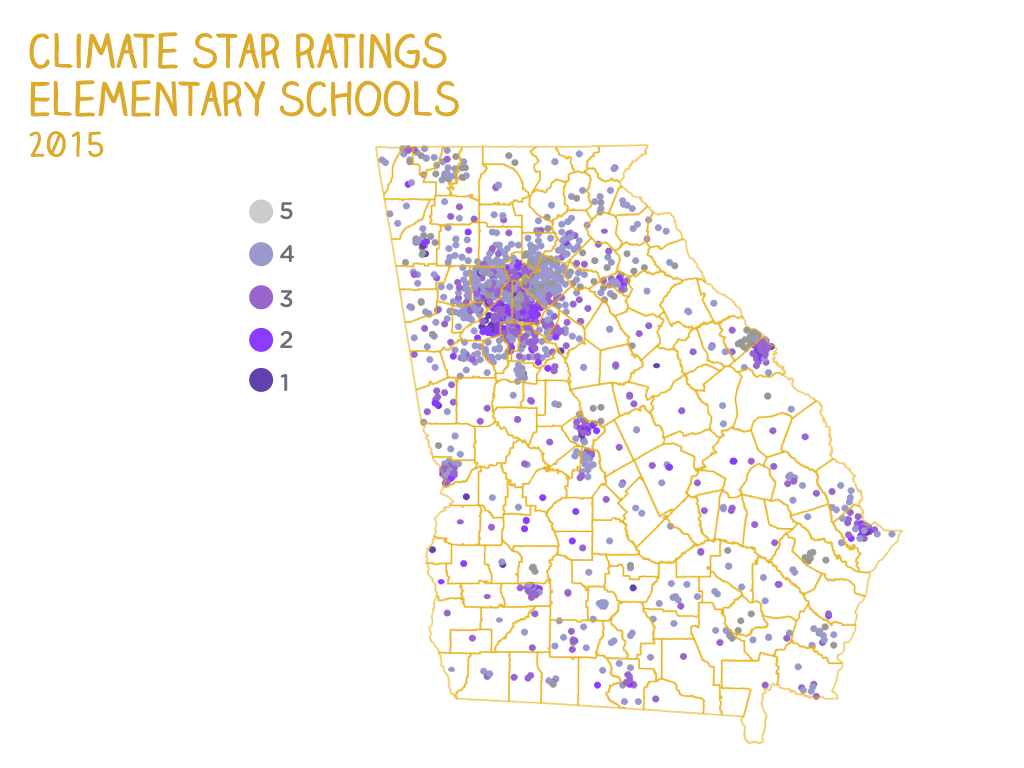What does this measure?
This is a composite score that measures school climate by utilizing four components: student, personnel, and parent school climate surveys; student and personnel attendance; safe and substance-free learning environment; and school discipline.
School climate refers to the quality and character of school life. It’s based on patterns of students, parents, and personnel’s experiences of school life—and it reflects norms, goals, values, interpersonal interactions, teaching and learning practices, and organizational structures.
Each school receives a 1-5 star rating, with 5 stars representing an excellent school climate, and 1 star representing a school climate most in need of improvement. Schools have access to a comprehensive report which will allow them to identify areas in need of improvement and plan targeted student interventions to improve achievement for all students.
Data Source
The School Climate Star Rating is calculated using data from the Georgia Student Health Survey 2.0, Georgia School Personnel Survey, Georgia Parent Survey, student discipline data, and attendance records for students, teachers, staff and administrators.
The School Climate Star Rating provides school-level data on the following components:
- Survey: a measure of student, teacher, and parent perceptions of a school’s climate
- Student Discipline: a measure of student discipline using a weighted suspension rate
- Safe and Substance-Free Learning Environment: school discipline incidents and student survey responses on use of illegal substances and the prevalence of violence, bullying, and unsafe incidents within a school
- Attendance: the average daily attendance of teachers, administrators, and staff members as well as the percentage of students with less than six unexcused absences
Why is this important?
Research conducted by the Georgia Department of Education analyzing the impact of school climate on third-grade reading found that school climate accounted for 50 percent of the variance on third-grade reading outcomes.

References and Resources
- Ayoubi, D. Correlation of Third Grade Reading Proficiency and School Climate Star Rating. Atlanta, Georgia Department of Education, Policy and Research Division, 2014.
- Guo, Y, et al. Classroom quality and student engagement: contributions to third-grade reading skills. Frontiers in Psychology, July 2011.
- McGiboney, G.W. (2016) The Psychology of School Climate. Cambridge Scholars Publishing.
- Thapa, A et al. A Review of School Climate Research. Review of Educational Research, April 2013.
- Attendance Works Interactive Story Map. This map illustrates the findings of a deeper analysis of the national data from the 2013-14 school year described in Preventing Missed Opportunity.
